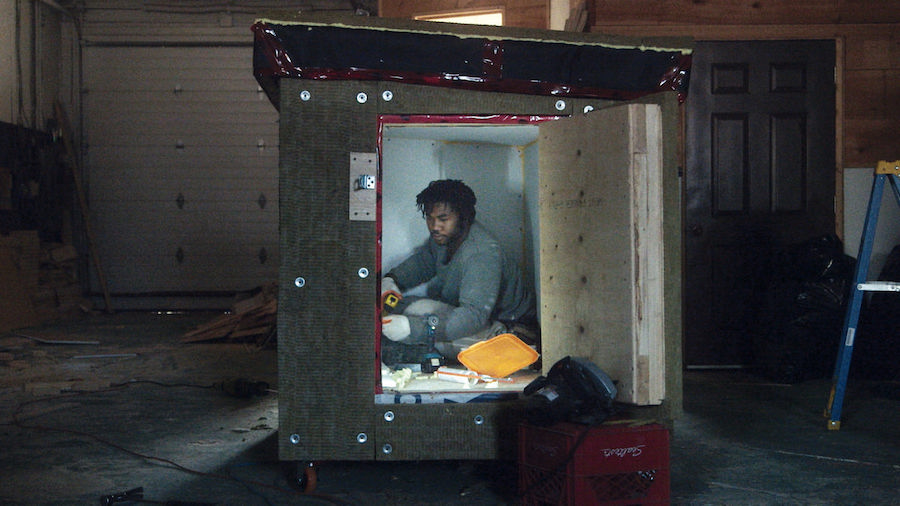One of the most remarkable people in the documentary Someone Lives Here is someone viewers hear but don’t see. Taka, a 56-year-old unhoused woman in Toronto who describes her challenges and shares her insights, asks director Zack Russell not to show her on screen, explaining that her image is one of the few things she’s still able to keep for herself.
She also expresses her happiness as a resident of a small wooden shelter built by Khaleel Seivwright, the carpenter whose handiwork became a familiar if ultimately fleeting sight in Toronto’s parks during the pandemic. Taka, with her sometimes unconventional phrasing, calls her tiny but practical abode “the house that built Khaleel.” This description serendipitously lands on an idea that’s key to Russell’s keenly observant film — Seivwright’s one-man campaign to contend with the housing crisis had a transformative effect on many lives, including his own.
Someone Lives Here provides an intimate view of a major news story that came to encapsulate the challenges the city faced over its unhoused population. Russell began shooting Seivwright when he heard about him making tiny shelters in his Toronto garage. The carpenter initially agreed to let Russell film him because he wanted to make how-to videos for people interested in doing the same.
What Russell ended up capturing was the arc of Seivwright’s role in an unfolding crisis, with the media interest in his endeavour sparking talk of a partnership with municipal officials. Financial contributions and positive coverage soon gave Seivwright the means to rent a bigger workspace and increase his output.
Other interview subjects share Taka’s enthusiasm for their new residences. A man living in Trinity Bellwoods Park describes how much better rested he is now that he’s able to be inside: “Every night, I sleep like a baby.” A woman in Alexandra Park now feels “safe against all the elements, even the physical elements — the nasty people.”
More on Broadview:
- Why child poverty is rising in Canada again
- Community support helps refugee family find home amidst Canada’s housing crisis
- African refugees displaced in Toronto find temporary shelter, support at East End United
But Russell’s film also shows the pushback to the growing size and prominence of the encampments, with fires and other incidents raising concerns about the safety of park inhabitants and nearby homeowners. It doesn’t take long for the city’s excitement over Seivwright’s “innovative” response to dissipate — resulting in a court order to cease his work.
To witness the snuffing of Seivwright’s ambitions can make for dispiriting viewing, especially during the scenes of police confronting protesters as they clear the encampments and once again push the housing crisis out of view.
But Someone Lives Here may ultimately be about something larger than Seivwright and Toronto. It captures the need to listen to the people most directly affected and consider their needs and perspectives, rather than perpetuate a system that so often fails those it claims to support. Unsurprisingly, Taka has plenty to say about the shelter system as someone who’s survived it: “It’s against dignity, it’s dehumanizing and it’s stupidifying.”
Someone Lives Here leaves viewers with the hope that newer, more empathetic approaches may grow from the seeds of the failed dream portrayed.
***
Jason Anderson is a writer and film programmer in Toronto.















